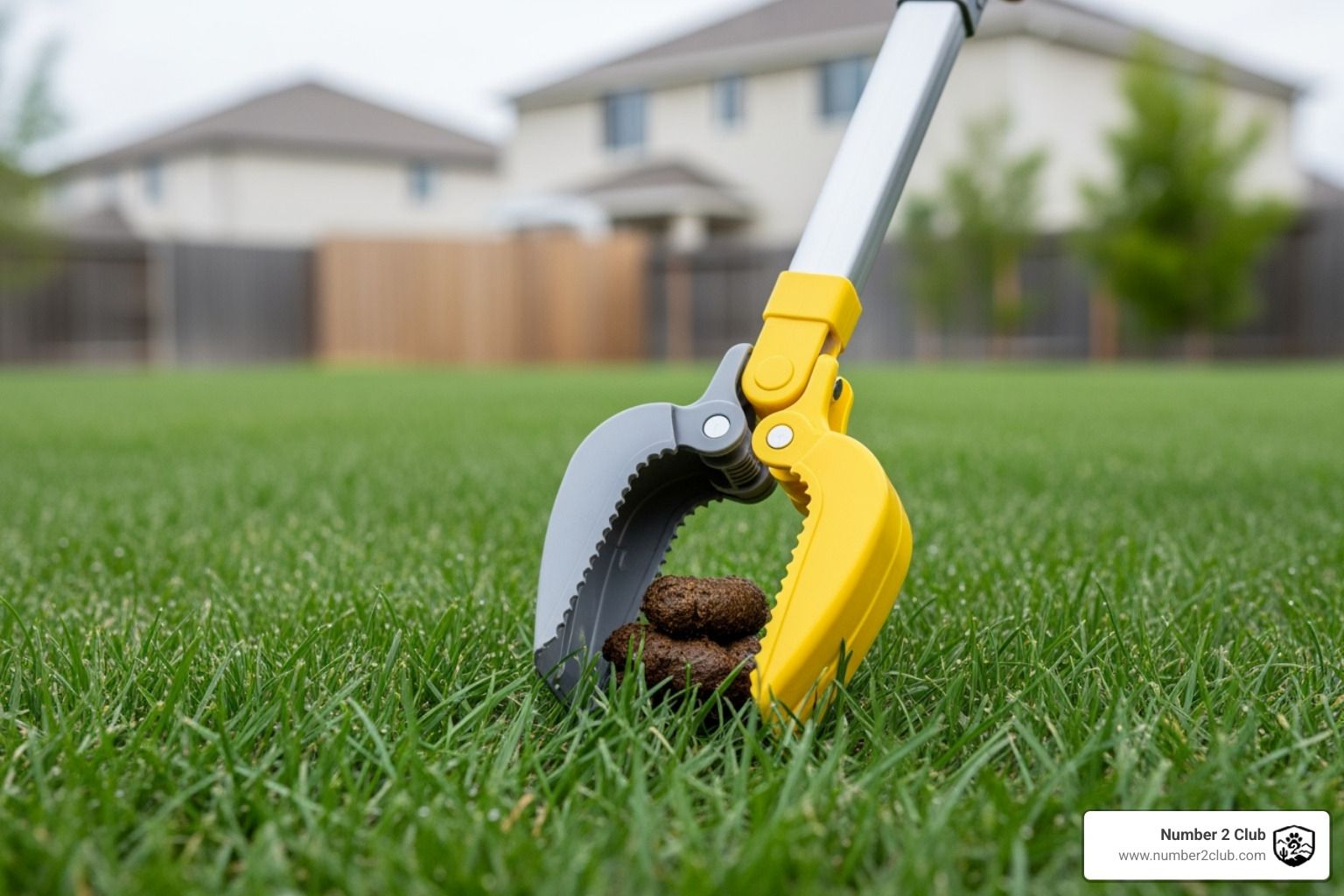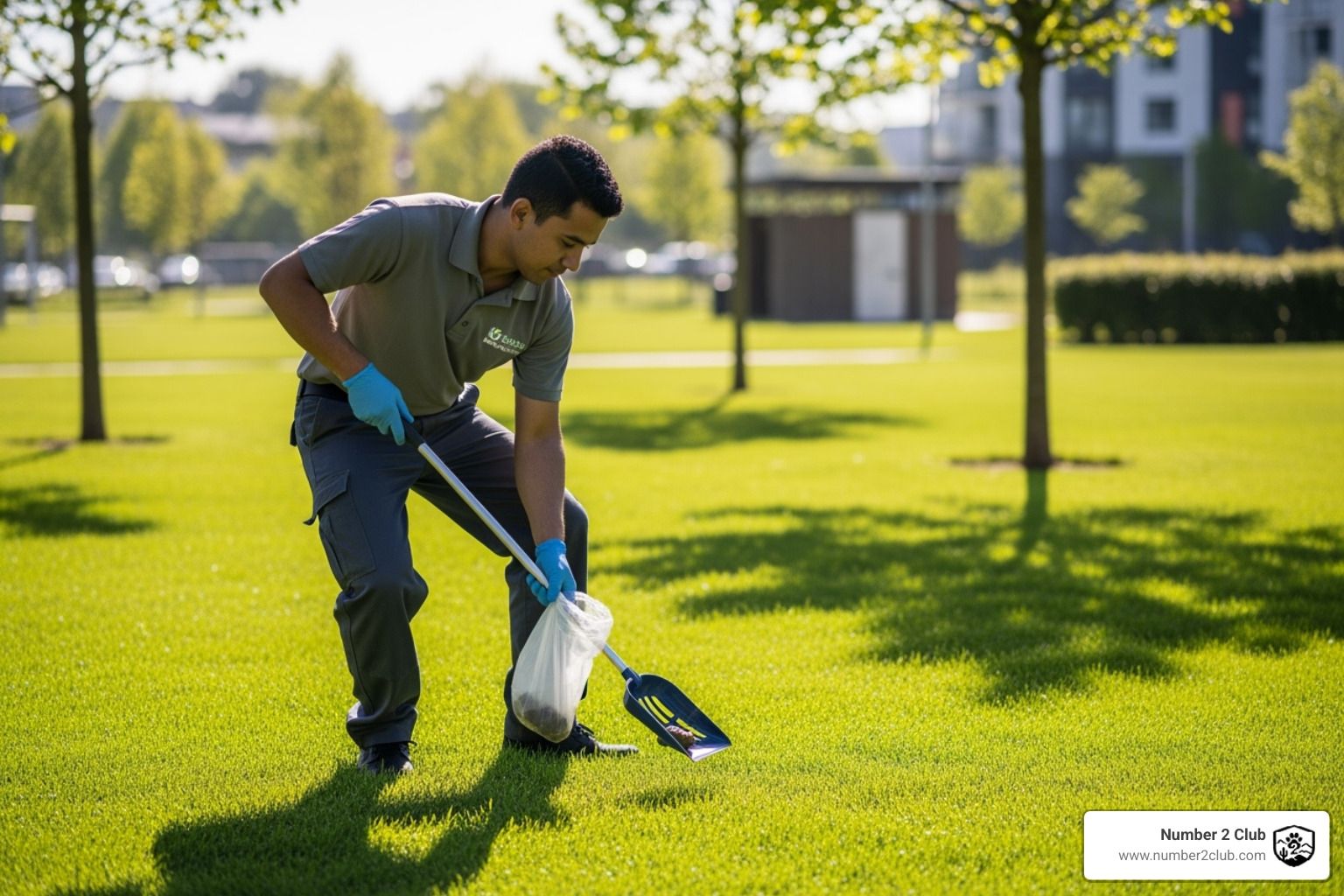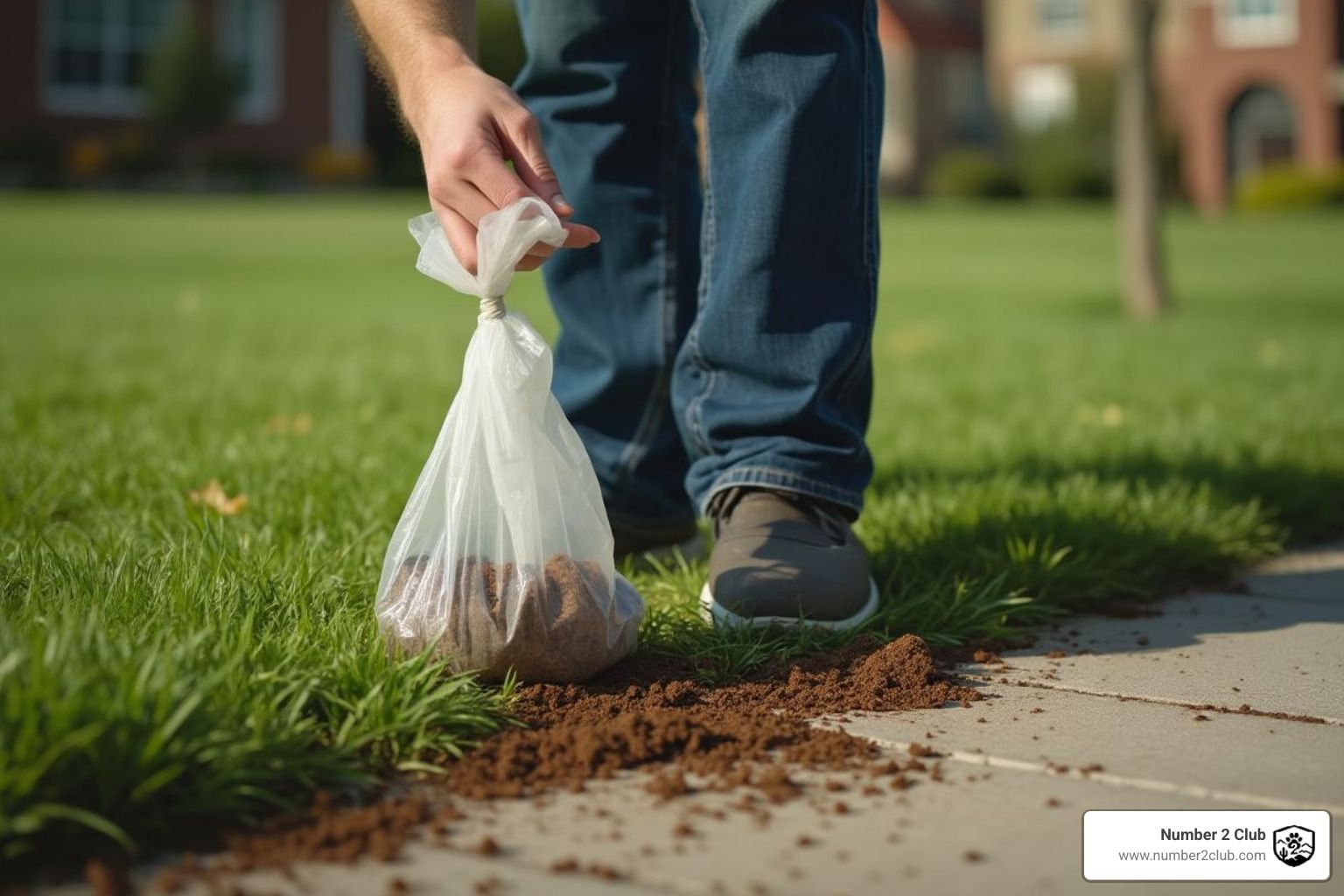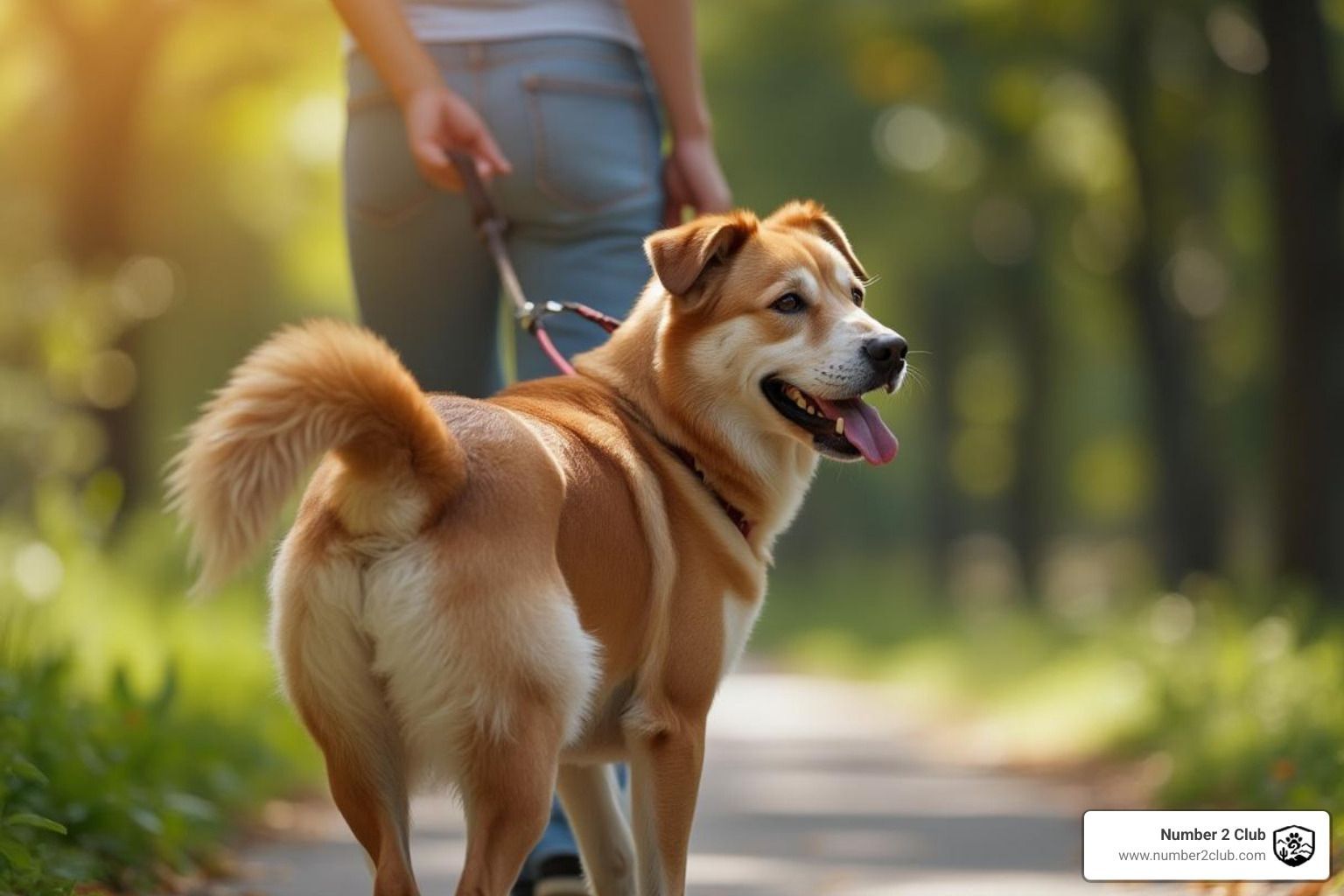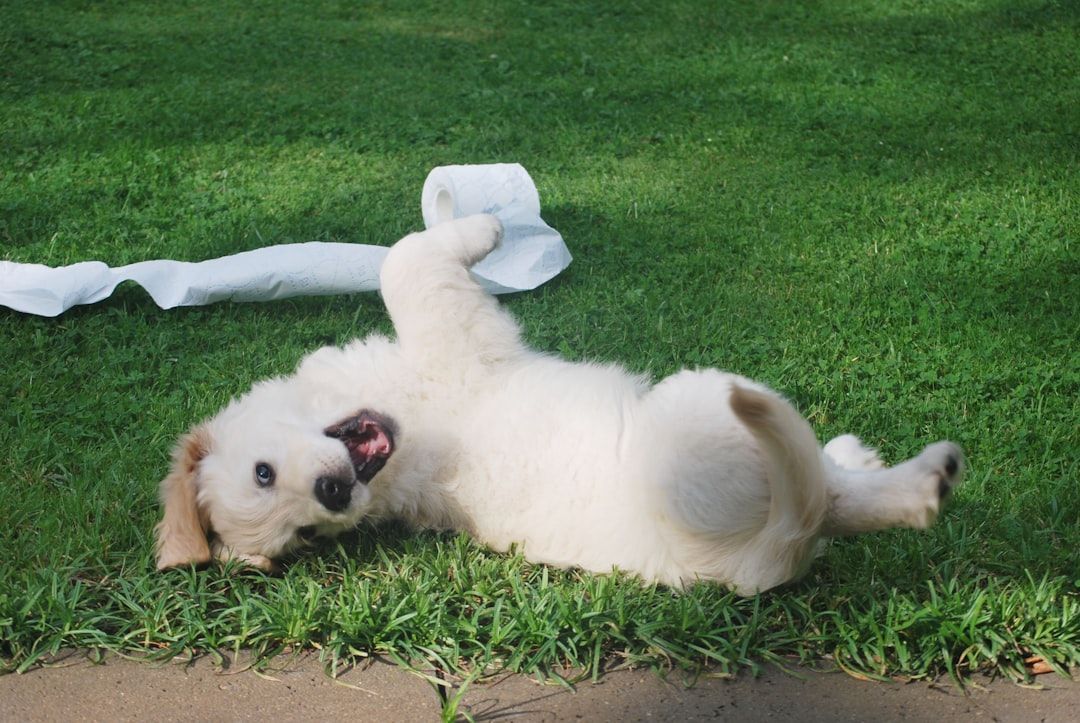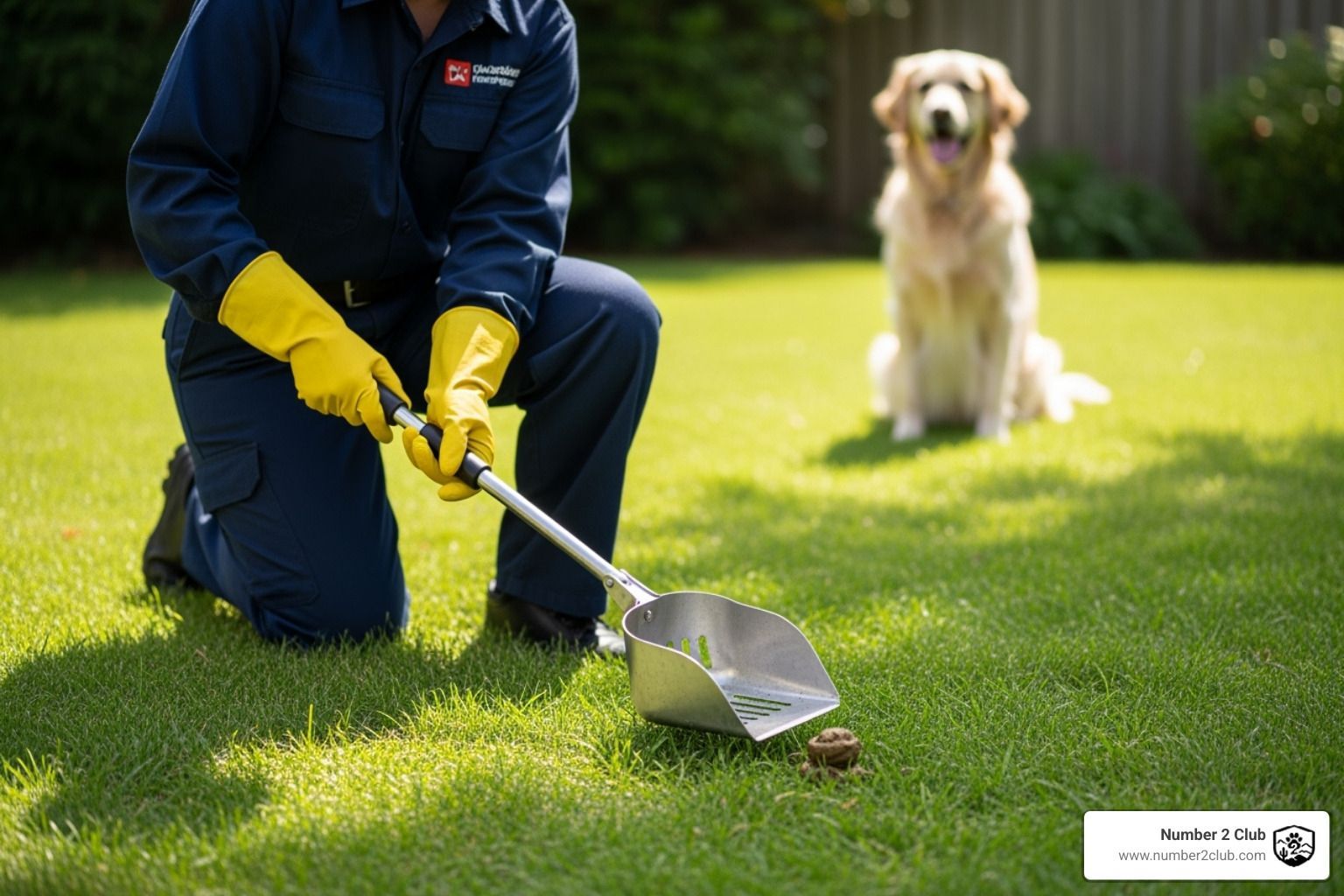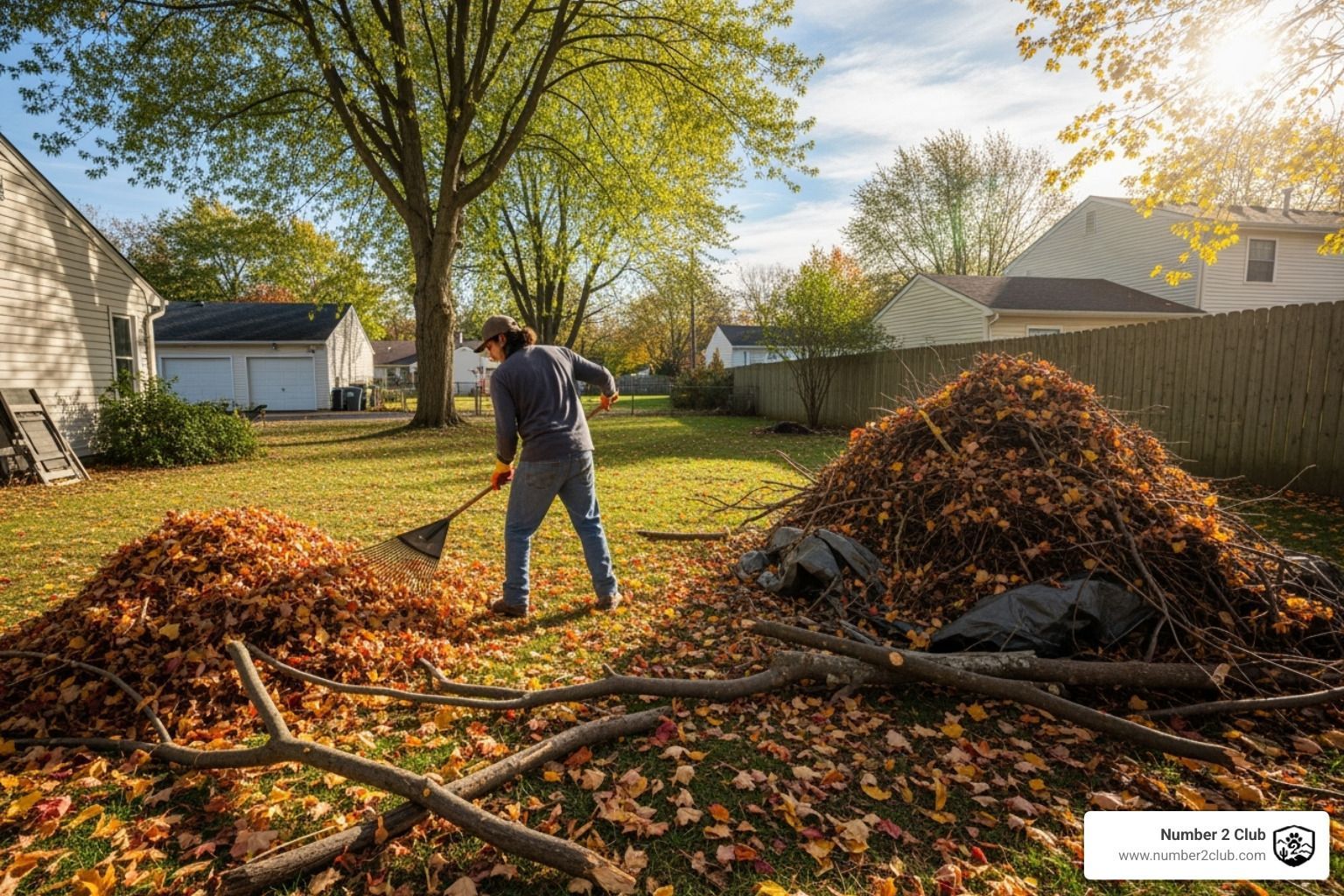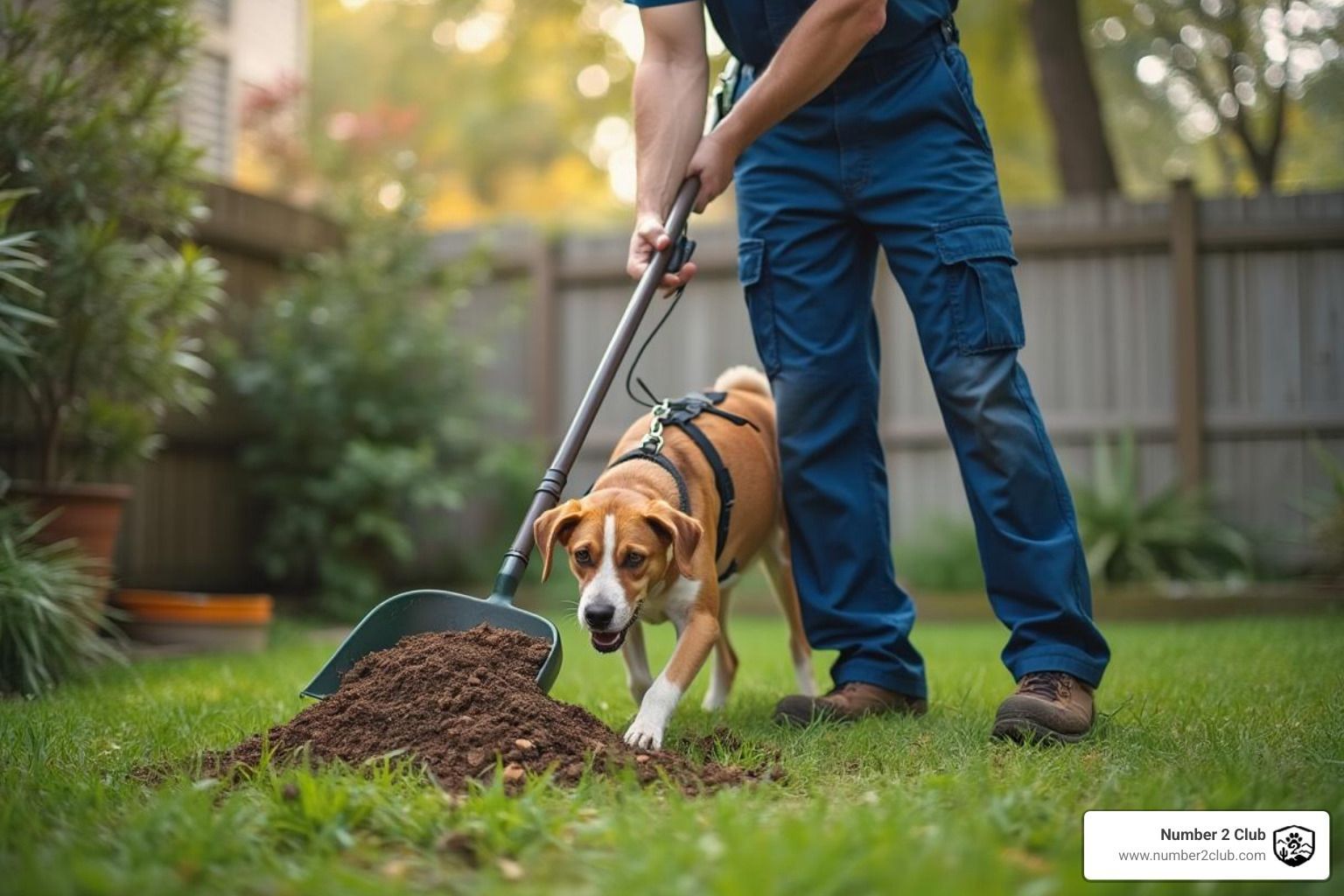Behind the Bags – What Happens to Pet Waste After Pickup?
Why Pet Waste Disposal Methods Matter for Your Community
What do pet waste removal companies do with the waste varies significantly depending on the service provider and local regulations. Here's what happens after pickup:
Common Disposal Methods:
- Landfill disposal- Most common method, waste goes to approved municipal facilities
- Composting- Eco-friendly approach using high-temperature processing to kill pathogens
- Client's trash- Some companies bag waste and leave it in your garbage bin
- Specialized treatment- Advanced options like biogas harvesting or waste-to-energy
You hire a professional to keep your yard clean, but have you ever wondered where the waste goes after it leaves your property? The journey of pet waste is more complex than you might think, involving different disposal methods that impact our environment and health.
The reality is stark: Dog poop is classified as hazardous material containing up to 23 million fecal coliform bacteria per gram. When not handled properly, it can contaminate water supplies, spread disease, and create serious health risks for families and pets.
This guide breaks down exactly what happens to pet waste after it's picked up, helping you make informed decisions about the service you choose.
I'm Joseph Lopez nc, founder of Number 2 Club, and I've spent years understanding what do pet waste removal companies do with the waste through our operations across Arizona's West Valley. My experience has shown me that disposal methods directly impact community health and environmental safety.
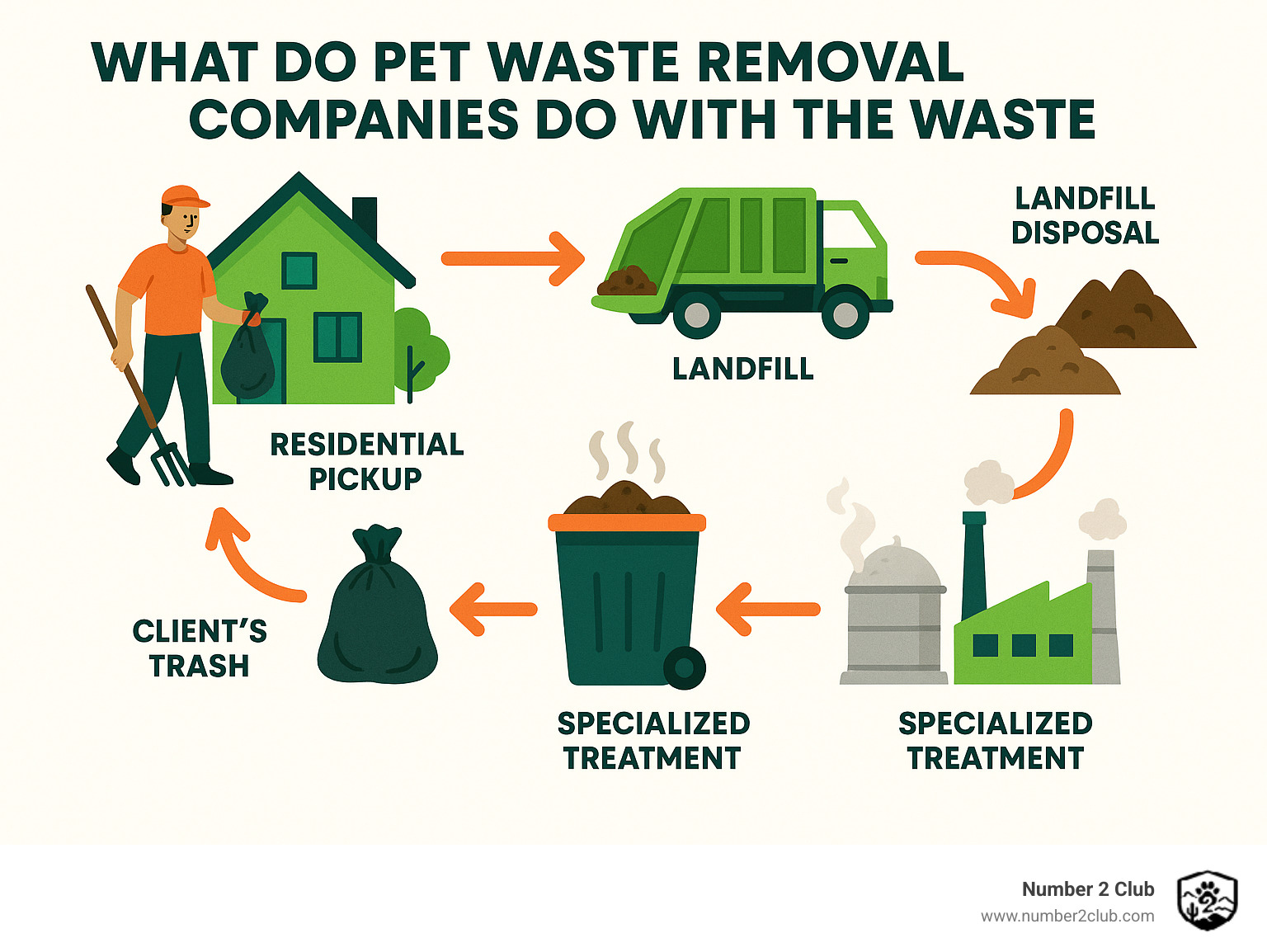
The "Scoop-Only" vs. "Full-Removal" Difference
Understanding what do pet waste removal companies do with the waste starts with knowing the two main service models in our industry. This distinction is crucial because it determines exactly where your pet's waste ends up - and how much responsibility you still have after the service visit.
Scoop-Only Services
Picture this: a service comes to your home, carefully collects all the waste from your yard, bags it up neatly, and then... leaves it right there in your garbage bin. That's what we call a "scoop-only" service.
While these companies handle the messy collection part, they're essentially handing the final disposal step back to you. You're still responsible for dealing with bags of accumulated waste when garbage day rolls around. Plus, your bins can develop some pretty persistent odors that no amount of cleaning seems to eliminate.
The reality is that if you're still dealing with the smelliest part of the process, you're not getting the full convenience you paid for. It's like hiring someone to cook dinner but leaving you to clean the burnt pans.
Full-Removal Services
True Professional Pet Waste Removal means we handle everything from start to finish. We collect the waste, remove it from your property entirely, and dispose of it safely at approved facilities.
Once we drive away, you never have to think about that waste again. No lingering odors in your bins, no heavy bags to wrestle with on garbage day, and no worries about proper disposal methods.
This complete service model ensures we maintain full responsibility for the waste management process. We handle compliance with local regulations, environmental standards, and proper disposal protocols so you don't have to.
| Service Type | Waste Collection | Final Disposal | Odor Control | Client Responsibility |
|---|---|---|---|---|
| Scoop-Only | ✓ Collected and bagged | Left in client's bin | Limited - odors remain on property | Client handles final disposal |
| Full-Removal | ✓ Collected and bagged | Hauled away to approved facilities | Complete - no waste remains | None - service handles everything |
Why This Distinction Matters
The difference between these approaches goes way beyond convenience. Full-removal services ensure proper disposal through approved channels, which reduces environmental impact and health risks for your entire neighborhood.
When waste sits in residential garbage bins between pickup days, it creates sanitation issues, attracts unwanted pests, and can contribute to neighborhood odor problems. Nobody wants to be that house on the block.
Our experience serving families across Litchfield Park, Goodyear, Verrado, and Buckeye has shown us something interesting: clients who switch from scoop-only to full-removal services consistently report much higher satisfaction levels. They love the complete peace of mind that comes with true professional waste management.
What Does Number 2 Club Do with the Waste After Hauling It Away?
Once the waste is removed from your property, it begins its journey to a final disposal site. Understanding what do pet waste removal companies do with the waste helps you make informed decisions about the service you choose. The method used depends on the company's business model and local regulations, and honestly, there's quite a bit of variation in the industry.
Here are the most common destinations for collected pet waste, each with its own benefits and considerations.
Method 1: The Landfill Route
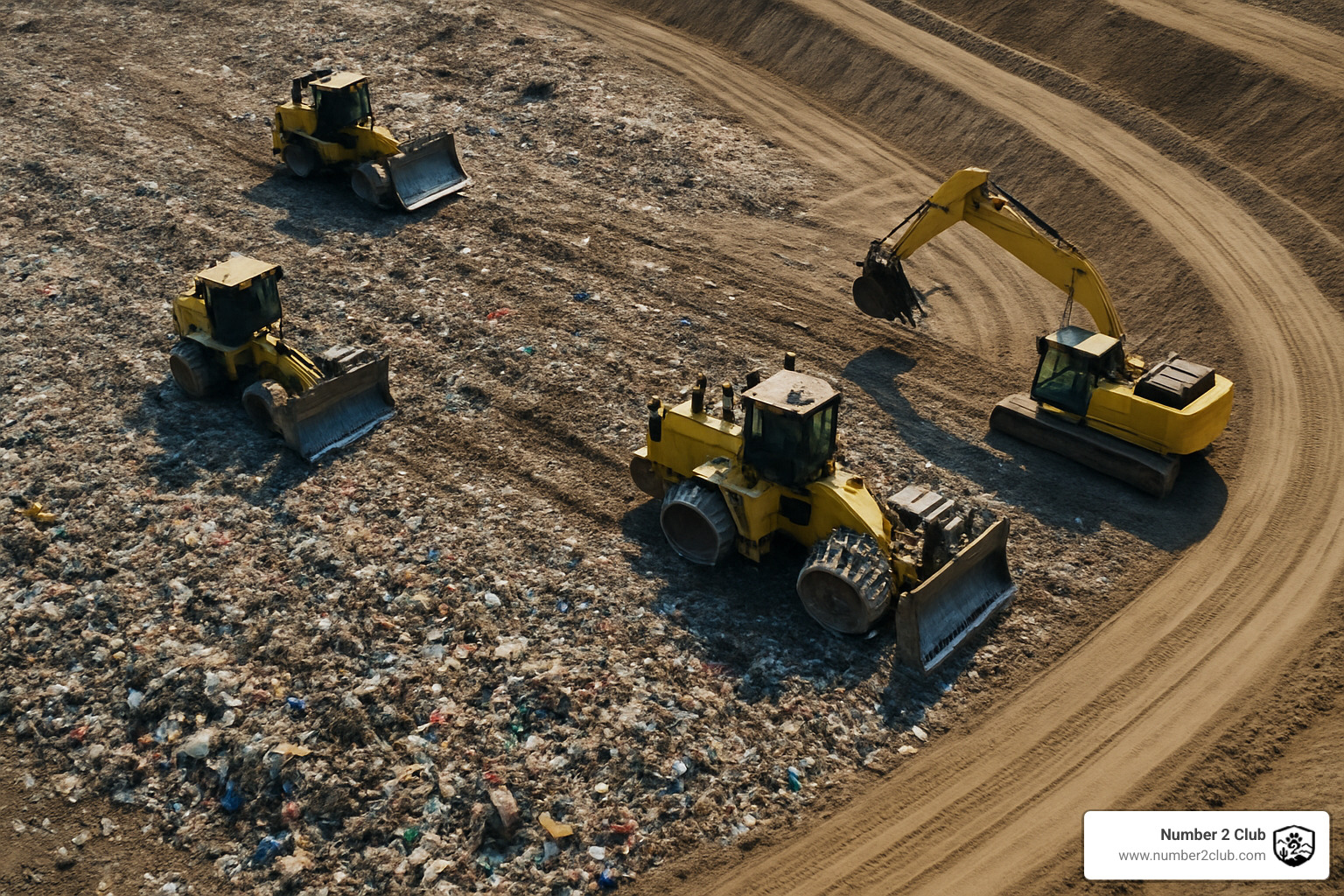
Landfill disposal is the most straightforward answer to what do pet waste removal companies do with the waste. This method involves transporting collected waste to approved municipal solid waste facilities where it's processed according to strict environmental standards.
Modern sanitary landfills aren't just giant holes in the ground. They're carefully engineered systems with liner systems to prevent groundwater contamination and gas collection systems to manage methane gas emissions. When we transport waste to these approved facilities, we know it's being handled responsibly.
But let's be honest about the environmental impact. Pet waste sealed in plastic bags creates a double problem. The organic waste produces methane as it breaks down, while those plastic bags can take up to 1,000 years to decompose. That's a lot of generations of dogs before that bag finally breaks down!
Despite these concerns, landfill disposal remains the most practical option for many companies. It's reliable, meets regulatory requirements, and ensures waste doesn't end up in unauthorized locations. The key is making sure waste reaches properly managed facilities rather than ending up somewhere it shouldn't.
Method 2: The Eco-Friendly Composting Approach
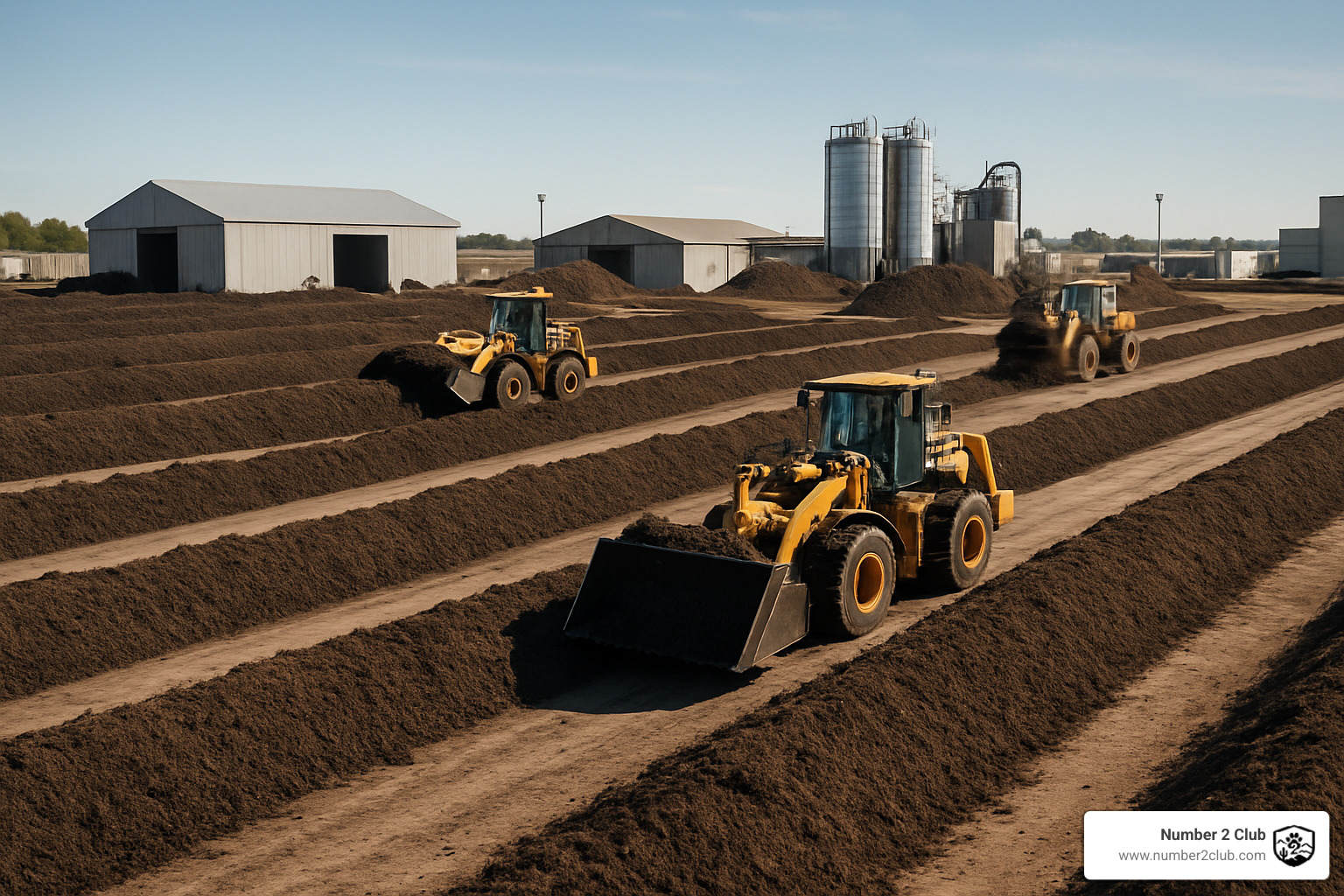
Specialized composting represents the gold standard for environmentally conscious pet waste disposal. This process requires sophisticated facilities that can maintain the high temperatures needed for safe pathogen elimination.
The composting process isn't as simple as throwing waste in a pile and waiting. Facilities must maintain temperatures around 165°F for approximately five days to safely eliminate dangerous bacteria like E. coli, salmonella, and parasites such as roundworms. It's like giving the waste a thorough sanitization treatment.
Professional composting operations create specific mixtures combining pet waste with carbon-rich materials. The carbon and nitrogen work to break down the waste naturally, changing what was once a problem into a beneficial soil amendment. The resulting compost becomes perfect for landscaping use and non-food gardens.
Some innovative companies have developed specialized composting programs where collected pet waste is processed at private facilities. These operations ensure the final compost product meets safety standards and can be safely used for landscaping purposes. It's pretty amazing how waste can be transformed into something useful for growing beautiful landscapes.
Method 3: Other Innovative & Niche Disposal Options
The future of pet waste disposal is getting creative. Waste-to-energy facilities can process pet waste along with other organic materials, converting it into usable electricity or heat through controlled incineration. It's like turning waste into power for your home!
Biogas harvesting through anaerobic digestion offers another fascinating approach. This process breaks down organic waste in oxygen-free environments, producing methane that can be captured and used as fuel. While not yet widely available for pet waste, this technology shows real promise for large-scale operations.
Some regions have experimented with processing pet waste through wastewater treatment plants, particularly when using specially designed flushable bags that dissolve in septic systems. However, this approach requires careful consideration of local infrastructure capacity and regulations.
These advanced options represent the cutting edge of sustainable waste management. Instead of simply disposing of waste, they transform it into useful resources. While less common today due to infrastructure requirements and costs, they point toward a future where waste becomes a resource rather than just something to get rid of.
Health and Environmental Stakes: Why Proper Disposal Matters
The way pet waste is handled has significant consequences for the health of our families, pets, and local ecosystems. Improper disposal is more than just an eyesore; it's a public health risk that affects entire communities.
When you're considering what do pet waste removal companies do with the waste, understanding these health and environmental impacts helps explain why proper disposal methods matter so much. The difference between responsible and irresponsible waste handling can literally be the difference between a safe, healthy community and one dealing with preventable health crises.
Protecting Public Health from Harmful Pathogens
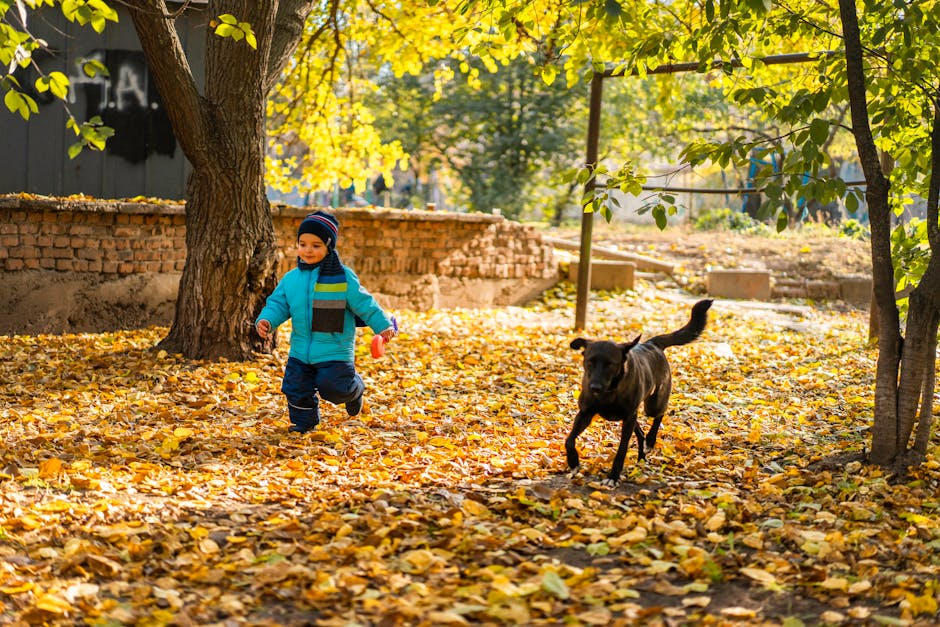
Pet waste is essentially a biological hazard sitting in your backyard. A single gram of dog waste contains an average of 23 million fecal coliform bacteria - that's more bacteria than you'll find in most sewage treatment plants.
These aren't just harmless microorganisms. We're talking about dangerous pathogens like salmonella, giardia, and various roundworm species that can make your family seriously ill. These disease-causing organisms don't just disappear when the waste dries up - they can survive in contaminated soil for months or even years.
Children face the highest risk because they naturally play close to the ground and have a tendency to put their hands in their mouths. When pets walk through contaminated areas, they become unwitting carriers, tracking bacteria and parasites directly into your home on their paws and fur.
Here's a sobering statistic: recent CDC studies show that 14 percent of Americans test positive for roundworms. That's not a coincidence - it's a direct result of improper pet waste management in our communities.
This is exactly why professional services exist. When companies properly handle waste removal and disposal, they're breaking the cycle of contamination that puts families at risk. Our Yard Sanitizing and Deodorizing Service goes even further by treating areas where contamination may have occurred, providing an extra layer of protection for your family and pets.
Safeguarding Local Ecosystems and Waterways
The environmental impact of pet waste extends far beyond your property lines. When waste isn't properly disposed of, stormwater runoff becomes a highway for bacteria and nutrients to reach local waterways, creating pollution problems that affect entire ecosystems.
Pet waste is loaded with nitrogen and phosphorus- the same nutrients that cause massive algal blooms in lakes and rivers. These blooms might look harmless, but they're actually environmental disasters that deplete oxygen levels in water, killing fish and making water unsafe for swimming, fishing, or drinking.
In places like New Jersey, this isn't just a theoretical concern. When pet waste is left on the ground, it can wash into waterways and affect recreational areas like Lake Hopatcong , turning beautiful natural resources into contaminated zones that families can't safely enjoy.
The damage doesn't stop at waterways. Pet waste also destroys lawns and landscaping through nitrogen burn, creating those ugly brown patches where waste has been left untreated. The high nitrogen content literally "burns" grass, requiring expensive reseeding or replacement of affected areas.
Professional disposal services help protect these local ecosystems by ensuring waste reaches appropriate treatment facilities rather than entering stormwater systems or contaminating soil and groundwater. When you choose a service that properly handles waste disposal, you're not just protecting your yard - you're helping protect the natural resources that make your community a great place to live.
The Role of Regulations and Responsible Practices
Pet waste removal might seem like a simple business, but it's actually a professional industry governed by strict local and state regulations. These rules exist for good reason - to protect public safety and keep our environment clean.
Think about it: when you're dealing with material that contains 23 million bacteria per gram, you can't just wing it. There are real consequences when what do pet waste removal companies do with the waste doesn't follow proper protocols.
How Number 2 Club Stays Compliant with Waste Disposal
Here in Arizona, local ordinances don't mess around when it comes to pet waste. Dog poop is classified as hazardous material, which means it requires specific handling and disposal procedures. This isn't just bureaucratic red tape - these regulations protect families and communities from serious health risks.
Our operations across Litchfield Park, Goodyear, Verrado, and Buckeye must follow various municipal waste management laws. This means we can't just dump waste anywhere we want. We're required to use approved disposal facilities, maintain strict sanitation protocols, and prevent cross-contamination between the properties we service.
Sanitation protocols are a huge part of staying compliant. Our team changes gloves between every property and sanitizes all equipment to prevent spreading bacteria and parasites from one yard to another. It might seem like overkill, but when you're dealing with material that can carry salmonella and roundworms, these precautions are essential.
The insurance requirements for professional pet waste removal tell you everything you need to know about how seriously this work is taken. Companies must carry liability insurance to protect against potential health and environmental claims. This isn't because we expect problems - it's because the risks of improper waste handling are real and recognized by regulatory agencies.
These regulatory frameworks become even more critical for Commercial Dog Waste Removal at parks, apartments, and HOAs. When you're dealing with higher volumes of waste and more people potentially affected, the safety measures become even more stringent.
Government agencies understand that proper pet waste management isn't just about keeping yards clean - it's essential for community health. Regulations continue to evolve as we learn more about environmental and health impacts, which means professional services like ours must stay current with best practices and compliance requirements.
The bottom line? When you hire a professional service, you're not just paying for convenience. You're paying for expertise in handling hazardous material safely and legally, protecting your family and community in the process.
Frequently Asked Questions About Pet Waste Disposal
Can I compost my own dog's waste at home?
Yes, but it's definitely not as simple as tossing it in your regular compost bin. Home composting of dog waste requires a completely separate system from your garden compost, and honestly, it's more complicated than most people realize.
The biggest challenge is temperature control. Your compost pile needs to reach and maintain around 165°F to kill harmful pathogens like E. coli, salmonella, and roundworms. Most backyard composting systems rarely reach these temperatures consistently, which makes home composting potentially dangerous for your family's health.
Even if you manage to compost it properly, the resulting compost should only be used on non-edible plants and never in a vegetable garden. The Environmental Protection Agency is clear about this - even properly composted pet waste should not be used on crops grown for human consumption.
Many people find that it's simply easier and safer to leave this type of composting to professionals who have the specialized equipment and expertise to ensure safe processing. When you're dealing with 23 million bacteria per gram of waste, it's worth getting it right.
Why can't I throw dog poop in my city's yard waste or green compost bin?
This is one of the most common questions we hear, and the answer comes down to how municipal composting facilities are designed. These facilities are specifically calibrated for yard trimmings and food scraps - they're not equipped to handle the specific bacteria and parasites found in pet waste.
The pathogens in dog waste are much more resilient than what's typically found in grass clippings or kitchen scraps. They can actually survive the standard municipal composting process and contaminate the entire batch, making the final compost product unsafe for public use.
Think about it this way: municipal compost often ends up in public parks, school gardens, and residential landscaping projects. Including pet waste in regular compost bins could compromise all of that material, creating a public health risk instead of a beneficial soil amendment.
What should I ask a company about how they handle the waste?
When you're interviewing potential pet waste removal services, the first question should be whether they offer "scoop-only" or "full-removal" services. This distinction makes all the difference in understanding what happens to your pet's waste.
If they claim to haul it away, don't be afraid to ask for specifics: "What do pet waste removal companies do with the waste?" Do they transport it to an approved landfill, use a specialized composting facility, or employ another disposal method? A reputable company will be completely transparent about their disposal practices.
You should also inquire about their insurance coverage and sanitation protocols. Professional services should carry liability insurance and follow strict cleaning procedures to prevent cross-contamination between properties. Ask how they clean their equipment and whether they change gloves between service locations.
Don't forget to ask about their compliance with local regulations. Pet waste is classified as hazardous material in many areas, so your service provider should understand and follow all applicable waste management laws.
A trustworthy company will answer all these questions clearly and without hesitation. If they seem evasive or can't explain their process, that's a red flag. For more detailed information about our specific practices and policies, check our Frequently Asked Questions page.
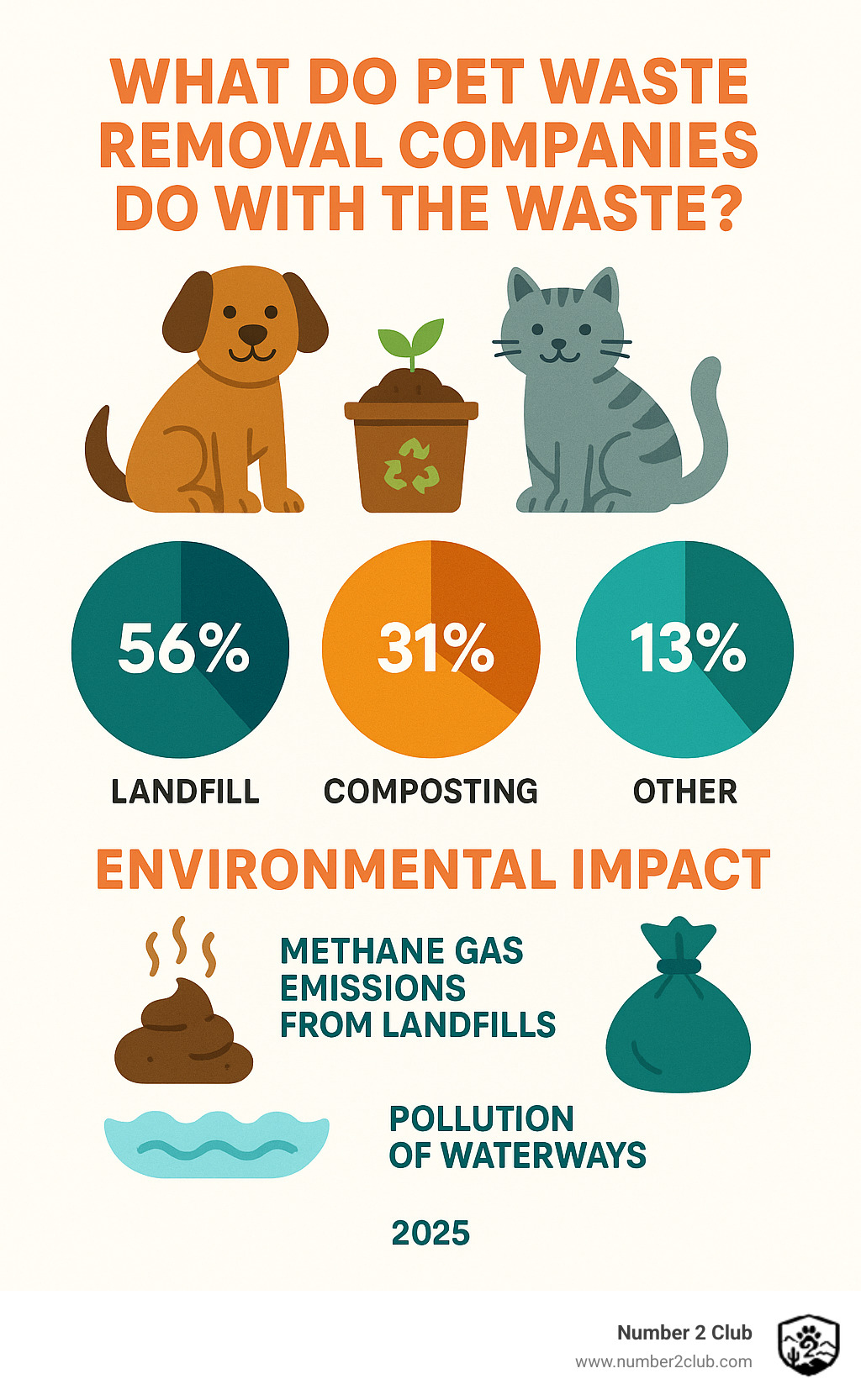
Conclusion: Making an Informed and Responsible Choice
Understanding what do pet waste removal companies do with the waste after it leaves your yard reveals something important about the service you're choosing. It's not just about getting poop off your lawn—it's about how that waste impacts your community's health and environment.
The journey we've explored shows that disposal methods vary dramatically between companies. Some simply bag waste and leave it in your garbage bin, while others transport it to specialized facilities for proper processing. This difference matters more than you might think.
When you choose a full-removal service over a scoop-only option, you're ensuring that dangerous pathogens don't linger on your property. We're talking about material containing 23 million fecal coliform bacteria per gram. That's not something you want sitting in your trash bin for days, creating odors and potential health risks.
The disposal method a company uses tells you about their values too. Companies that invest in proper composting or approved landfill disposal are thinking beyond just collecting waste—they're considering the bigger picture of community health and environmental responsibility.
Our experience across Arizona's West Valley has shown us that clients care deeply about these issues once they understand them. Nobody wants to learn that their pet's waste is being dumped inappropriately or handled in ways that could harm local waterways or create health hazards.
Professional disposal methods protect your family from diseases like salmonella, giardia, and roundworms. They also protect our precious desert water resources from contamination. When you consider that 14 percent of Americans test positive for roundworms, the importance of proper waste handling becomes crystal clear.
The regulations governing pet waste disposal exist for good reason. They ensure that companies handling hazardous material do so safely and responsibly. When you choose a service that follows these regulations, you're getting peace of mind that extends far beyond your property line.
By choosing a professional service like Number 2 Club that handles waste responsibly, you're not just keeping your yard clean—you're making a positive choice for your entire community. Our commitment to proper disposal methods ensures that waste collected from properties across Litchfield Park, Goodyear, Verrado, and Buckeye receives the careful handling that public health and environmental protection require.
Ready to ensure your pet's waste is handled the right way? Learn more about our comprehensive dog waste removal services and find how proper disposal methods can make a real difference for your family and community.


